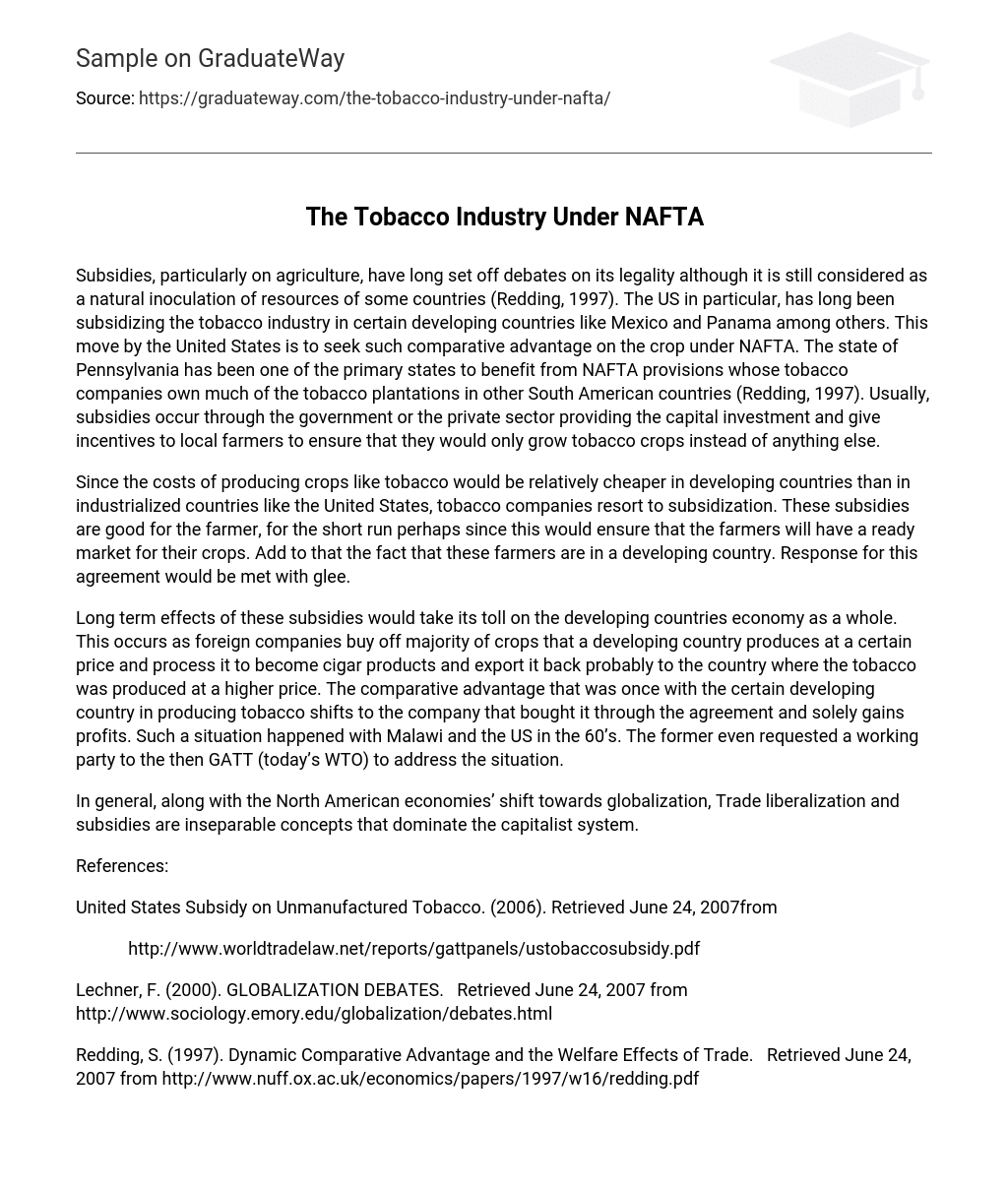Subsidies, particularly on agriculture, have long set off debates on its legality although it is still considered as a natural inoculation of resources of some countries (Redding, 1997). The US in particular, has long been subsidizing the tobacco industry in certain developing countries like Mexico and Panama among others. This move by the United States is to seek such comparative advantage on the crop under NAFTA. The state of Pennsylvania has been one of the primary states to benefit from NAFTA provisions whose tobacco companies own much of the tobacco plantations in other South American countries (Redding, 1997). Usually, subsidies occur through the government or the private sector providing the capital investment and give incentives to local farmers to ensure that they would only grow tobacco crops instead of anything else.
Since the costs of producing crops like tobacco would be relatively cheaper in developing countries than in industrialized countries like the United States, tobacco companies resort to subsidization. These subsidies are good for the farmer, for the short run perhaps since this would ensure that the farmers will have a ready market for their crops. Add to that the fact that these farmers are in a developing country. Response for this agreement would be met with glee.
Long term effects of these subsidies would take its toll on the developing countries economy as a whole. This occurs as foreign companies buy off majority of crops that a developing country produces at a certain price and process it to become cigar products and export it back probably to the country where the tobacco was produced at a higher price. The comparative advantage that was once with the certain developing country in producing tobacco shifts to the company that bought it through the agreement and solely gains profits. Such a situation happened with Malawi and the US in the 60’s. The former even requested a working party to the then GATT (today’s WTO) to address the situation.
In general, along with the North American economies’ shift towards globalization, Trade liberalization and subsidies are inseparable concepts that dominate the capitalist system.
References:
United States Subsidy on Unmanufactured Tobacco. (2006). Retrieved June 24, 2007from
http://www.worldtradelaw.net/reports/gattpanels/ustobaccosubsidy.pdf
Lechner, F. (2000). GLOBALIZATION DEBATES. Retrieved June 24, 2007 from http://www.sociology.emory.edu/globalization/debates.html
Redding, S. (1997). Dynamic Comparative Advantage and the Welfare Effects of Trade. Retrieved June 24, 2007 from http://www.nuff.ox.ac.uk/economics/papers/1997/w16/redding.pdf





